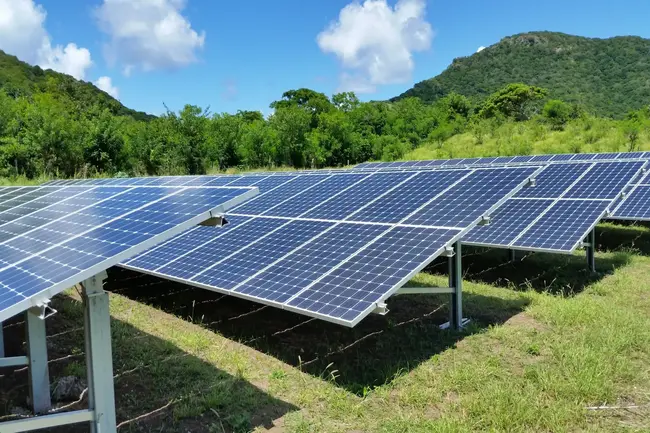Grenada, also called the “Spice Isle of the Caribbean,” is a beautiful country offering exciting opportunities for people who want to invest and get citizenship. Through its Citizenship by Investment (CBI) program, you can become a Grenadian citizen by either making a donation to the government or investing in approved real estate.
Grenada’s main businesses include tourism, agriculture especially nutmeg and cocoa and real estate, but new opportunities are also growing in renewable energy, education, and small export businesses. If you are thinking of starting a business in Grenada, you could focus on eco-tourism resorts, small spice or chocolate production, boutique hotels, or green energy projects. On March 7, 2025, the Statutory Rules & Orders (SR&O) for the new automated certificate issuance system were officially gazetted. which helps standardizes the process, reduces errors, and makes the citizenship application process faster and more reliable.


The CBI program comes with many benefits: you get a passport that lets you travel to over 147 countries without a visa, you can include your family, you can hold dual citizenship, and you may even qualify for a U.S. E-2 investor visa. Grenada also has a very friendly tax system which is the foreign income is not taxed, there’s no capital gains or inheritance tax, and local business taxes are low. Overall, Grenada is perfect for people who want to combine a safe investment, a new lifestyle, and easy travel around the world.
Grenada Tax System Overview
Grenada has a simple and investor-friendly tax system, making it attractive for people looking to invest or start a business. The country uses a territorial tax system, which means that foreign-sourced income is generally not taxed. This is great for investors earning money from businesses or assets outside Grenada.
Grenada is also well known for its Citizenship by Investment Program, one of the most trusted programs in the world. By donating to the government fund or investing in approved real estate, investors can get Grenada citizenship and passport within just a few months which is 6 – 9 months. The passport allows visa-free travel to more than 147+, including the Singapore, China, UK and the Schengen Area. The list of taxes in Grenada is given below:
1. Personal Income Tax in Grenada
Grenada’s personal income tax rates range from 15% to 35%, as shown below:
| Annual Income Range (XCD) | Tax Rate |
|---|---|
| 0 – 36,000 | 0% |
| 36,001 – 60,000 | 15% |
| 60,001 and above | 30% |
In Grenada, when a company distributes dividends, there is no additional tax on dividends received by individuals, making dividend income generally tax-free for residents. Similarly, profits from the sale of real estate or other capital assets are not subject to capital gains tax, so investors can sell property or investments without paying taxes on the profit. Grenada also allows certain deductions on personal income, which reduce the total taxable income before calculating the tax owed. Overall, this makes Grenada’s system very attractive for investors, business owners, and residents earning income from both local and foreign sources.

In Grenada, personal income tax is managed by the Inland Revenue Division (IRD). If you are employed, your employer usually deducts taxes automatically through the Pay As You Earn (PAYE) system. Self-employed individuals or business owners must file an annual tax return and pay any tax due directly to the IRD. Keeping accurate records of income and deductions is important, and taxes must be paid on time to avoid penalties.
In Grenada, annual personal income tax returns must generally be filed by March 31 of the following year. Late submission or non-payment can lead to penalties and interest, so timely filing is important. Taxpayers should also keep accurate records of their income, deductions, and tax payments for at least five years, as the Inland Revenue Division may request them for verification or audits.
2. Corporate / Business Income Tax
Companies that are tax residents in Grenada are required to pay 28% fixed corporate income tax on both their local income. They must also contribute to Social Security for their employees. In addition, a 15% Value Added Tax (VAT) applies at the standard rate on goods and services. For non resident companies, the tax is only paid on the profit earned from sources in Grenada.
3. Withholding Tax
Withholding tax is applied when companies pay dividends, interest, rent, or royalties to non-residents. The tax rate is 15%, and it is deducted at the source, meaning the company takes it out before making the payment to the recipient.
4. Value Added Tax (VAT)
VAT is a consumption tax applied to most goods and services in Grenada. The standard rate is 15%, while a reduced rate of 10% applies to hotel accommodation and tourism-related services and diving companies. Some essential goods, such as rice and oil, as well as certain services like healthcare, educational, financial, public transport like that those are either zero-rated ( 0% )or exempt from VAT.
How VAT Works in Grenada ?
In Grenada, every registered person is issued a unique Taxpayer Identification Number (TIN) by the Comptroller, which includes additional digits for VAT purposes. Value Added Tax (VAT) must generally be filed and paid by the 20th day of the month following the taxable period. For example, VAT collected in January must be submitted and paid by February 20th.
5. Social Security Contributions
Social contributions are payments made by employees and employers to support government social programs, such as pensions, healthcare, and other social security benefits. They must contribute 6.75 percent of the 12.5 percent social security contribution.
6. Property Transfer and Real Estate Taxes
When buying property in Grenada, you are required to pay stamp duty and registration fees, and a small annual property tax may apply. These taxes help ensure legal ownership and support government services. If the property is sold, citizens must pay a 5% transfer tax, while foreigners pay 10%. However, these conditions do not apply to investors purchasing real estate under the Grenada Citizenship by Investment (CBI) program, as they are exempt from the landholding license and transfer taxes. For companies, the transfer tax ranges from 5% to 15%, and there is a 10% land license fee when purchasing property. The stamp duty is 1%, and the annual property tax is 0.8% of the current market value.


Tax Rules for Residents and Non-Residents
A person is considered a tax resident in Grenada if they live in the country for more than 183 days in a year or have their primary home and economic interests in Grenada. Tax residents are generally subject to Grenadian taxes on income earned within the country. a company incorporated or managed in Grenada is treated as a resident for tax purposes, but only income generated in Grenada is taxed.
However, Citizenship by Investment (CBI) investors enjoy special benefits. They can choose between making a government donation or investing in approved real estate. The donation option is non-refundable and tax-free, while income from real estate investments, such as rental income, is subject to local tax. Any income earned outside Grenada remains tax-free, even for residents with dual citizenship.
Because Grenada allows dual citizenship, you can keep your original passport while enjoying the benefits of the Grenada passport, including visa-free travel to numerous countries and a favorable tax regime.



